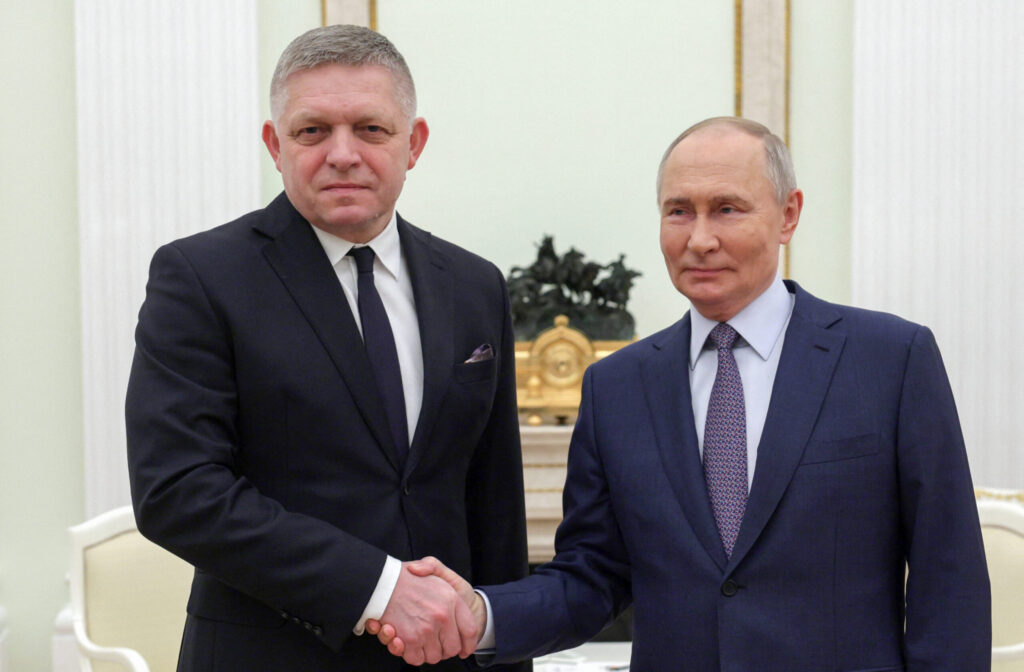Brussels – For more than a month, newly-rielected U.S. President Donald Trump has been reporting to Vladimir Putin his willingness to sit at the negotiating table to work on ending the war in Ukraine. And now, on the heels of the tycoon’s official inauguration in New York and as Kyiv’s army appears unable to repel the Russian advance, the race has begun among European chancelleries to host the peace talks.
The first to launch his own “candidacy” was last month Slovak Prime Minister Robert Fico, who, on a controversial pre-Christmas visit to Moscow, has proposed to organise in Bratislava what will undoubtedly be the summit of the decade between Donald Trump, whose return to the White House is set for January 20, and Russian President Vladimir Putin.
Last Thursday (Jan. 9), the tycoon reaffirmed that his future counterpart would like a meeting and that “we are arranging it.” The Kremlin communicated that the Federation leader is open to the idea and that there are no conditions to be met for the two to sit at the table.
So, yesterday (Jan. 12) was the turn of Switzerland, whose tradition of neutrality would qualify it as an ideal setting for possible talks, and Serbia, one of the Old Continent’s closest countries to the Kremlin. The Swiss Foreign Ministry has clarified that Berne could grant special permission to Putin, against whom the International Criminal Court issued an arrest warrant in March 2023, to allow him to participate in the negotiations.

The Hague Court warrant is indeed an issue that would have all three countries that have so far signalled their intention to host the talks. Although, as demonstrated in the case of Israeli Prime Minister Benjamin Netanyahu‘s visit to Poland, whether or not to follow up on international arrest warrants is an eminently political decision, regardless of the legal obligation that theoretically lies with the countries that have ratified the Statute of Rome (the 1998 treaty that established the ICC).
Serbian President Aleksandar Vučić described Belgrade as an “extremely suitable” venue to host the important diplomatic initiative, emphasizing both leaders’ great popularity in the Balkan state. “There is no country that can be compared to Serbia in terms of the level of support for President Trump,” Vučić told national TV, noting at the same time that “President Putin is still very, very popular” and pointing out that Belgrade would qualify as an ideal venue since—unlike Bratislava, but not Bern—it is not part of NATO.
However, whatever location is chosen, it seems clear that with Trump’s inauguration, the negotiating process for the end of hostilities in Ukraine will accelerate. The authorities in Kyiv—who are failing to repel the Russian offensive on the ground and may, therefore, be forced to give up a substantial portion of territory in exchange for peace—are especially aware of this.
The president of the former Soviet republic, Volodymyr Zelensky, has admitted in recent months that occupied regions cannot be liberated militarily by Kyiv and is urging his Western allies to provide the attacked country with solid and credible security guarantees as a deterrent against any future attacks by Moscow.
English version by the Translation Service of Withub







